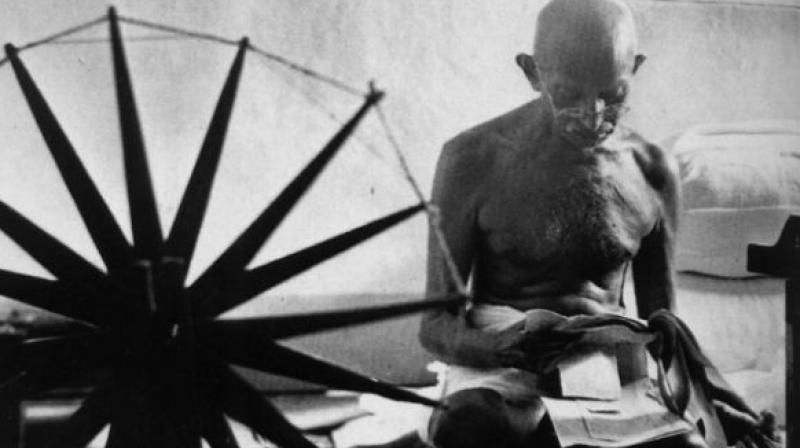Resurrecting handloom, the Swaraj' way
After agriculture, handlooms and handicrafts are the biggest source of livelihood for the rural India.

Bengaluru: One of the highlights of India's freedom struggle against the British imperialism was the Swadeshi movement, which strived to promote indigenous products, especially handlooms and handicrafts.
The iconic charkha (spinning wheel), made famous by Mahatma Gandhi, played a stellar role in mobilsing the masses across the country to fight a formidable empire, where the sun never set.
As India will soon be celebrating its 70th Independence Day, it is worth pondering if the country has realised its purpose of gaining freedom from colonialism and the current status of these cottage industries.
The indigenous Indian textile Industry, with its weavers, handlooms and handicrafts have been relegated to oblivion by machine crafted products.
However, Aikyam Community of Sustainable Living, a city based community initiative, along with Bhoomi College and Ragi Kana, another citizen led movement, is encouraging urban dwellers to come forward and be part of the movement through its Swaraj - Handloom Discovery Week.
“After agriculture, handlooms and handicrafts are the biggest source of livelihood for the rural India. It is time we give it some dignity,” said Anantha Sayanam, co-founder of Tula India , a Chennai based not for profit venture around organic Indian cotton that is also participating in the celebration. “They are not only sustainable but by buying one khadi shirt, you may be touching the life of one weaver,” he said.
In spite of various incentives, the industry is dying because of cost-cutting and a lack of demand. “Cost is the main concern. One weaver can weave eight metres of khadi a day, while a machine can weave three times more. But, saving a few bucks will come to haunt us in the future in a very dark way,” he observed. He lamented about the grave lack of awareness among the people. “By and large, today's population has almost zero knowledge on the technical aspects of fabrics or how healthy a particular fabric is to wear. Just as they are unaware of what the carbon footprint is, they are unaware of energy use and use of toxic chemicals. We need to change that,” says Sandeep Anirudhan, founder of Aikyam Community of Sustainable Living.
He felt the Khadi and Village Industries Commission was not trying hard enough to promote these industries.
“Modern businesses are focused on marketing and advertising, whereas handlooms are traditionally a home industry, like an informal collective activity among communities. They are never marketed well and do not employ effectively,” he said.
Agreeing to this view Sayanam said, “Khadi industry is a victim of the lack of political will. Only during political propaganda does a PM sport a khadi jacket. While it is all forgotten the next day.”
The Handloom Discovery Week will be held at three different venues, at Bhoomi College on August 11, at Atta Galatta on August 12 and at Ragi Kana on August 13 from 9am to 5pm.
The week will have talks on sustainability of the indigenous textile industry from experts like Arup Rakshit from Mahatma Gandhi Gramodyog Sewa Sansthan, a movement for revival of Muslin along with playwright and activist Prasanna.
In addition, products manufactured by the weavers of all these collectives will be on display and sale at each of the fixtures. There will be a demonstration of charkha by volunteers.

